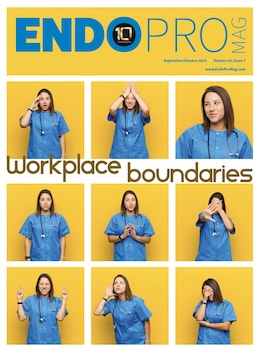The diet of a person can have significant effects on the gut microbiome, i.e. the populations of microorganisms such as bacteria which live in the human gut. It is well recognized that dietary habits through complex metabolic interactions contribute to cancer prevention. More specifically, diets rich in fiber reduce the risk of developing specific cancers such as colorectal cancer. Although such diets are an effective means of cancer prevention, their possible roles in cancer progression and treatment remains poorly understood.
A team of scientists from the Luxembourg Centre for Systems Biomedicine (LCSB) and the Life Sciences Research Unit (LSRU) at the University of Luxembourg has found that a combination of prebiotics, such as dietary fiber, and probiotics reduces the expression of pro-carcinogenic and drug resistance genes. The combination leads to metabolic changes that affect the growth of cancer cells and may help treat diseases such as colorectal cancer.
In order to study diet-microbiome-host interactions, the biologists worked with HuMiX (“Human-Microbial X(cross)-talk”) a unique in vitro model of the gut (“gut-on-a-chip”) which allows the cultivation of human intestinal cells together with bacteria under representative conditions. In this study, they investigated the effects of dietary regimens and a specific probiotic on colorectal cancer cells.
In contrast to individual fiber-rich or probiotic treatments, it was only the combination of fibre and probiotics that led to the observed beneficial effects. Together with their collaborators, the researchers integrated a computer-based metabolic model of the interactions between diet, host, and microbiome.
They identified the effects of the combined treatment: the downregulation of genes associated with colorectal cancer and drug-resistance, as well as the attenuation of self-renewal capacity of the cancer cells. Importantly, through careful molecular analyses, they also identified the cocktail of molecules produced by the combination, providing a mechanistic basis for the observed beneficial effects.
“Currently, cancer patients are not provided with evidence-based personalized dietary interventions during chemotherapy treatment. Our results provide support for exploiting the food-microbiome interactions as a supportive therapeutic approach in anti-cancer therapy,” explained Dr. Kacy Greenhalgh, post-doc within the Eco-Systems Biology group at LCSB and the lead author of the study.
“I hope that our results will reach patients and medical practitioners in their respective fields and that in the future more effort is put in including personalized dietary recommendations into cancer treatment plans.”
“This is especially the case in CRC, where the microbiome has increasingly gained importance over the last couple of years. A deeper understanding of the microbiome-host interaction could lead to new therapeutic strategies for CRC patients,” added Dr. Elisabeth Letellier, principal investigator within the Molecular Disease Mechanisms Group at LSRU.
The research project was successfully carried out thanks to the collaborative effort of different groups at the University of Luxembourg.
“Deciphering the complex host-diet-microbiome interactions and their effect on health and disease states requires the concerted effort of experts from different fields. The interdisciplinary approach was crucial for understanding the very complex molecular processes underlying the observed beneficial biological effects,” said associate professor Paul Wilmes, head of the Eco-Systems Biology group at LCSB and senior author of the study.
Source: University of Luxembourg






